Malaysian Amphibians
Malaysian Frogs and Toads
The Malaysian amphibians that are found extensively are of course the toads and frogs and the caecilians.
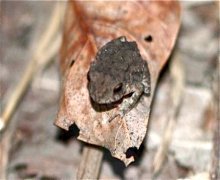 |
The Malaysian frogs and toads belong to the Amphibia order of Anura, while caecilians are of the Gymnophiona order.
What are Caecilians?
Generally, they look like worms, limbless with a short tail, and they burrow in the ground. But they have a large mouth with discernible eyes. Unlike snakes, they do not have scales, and unlike eels, they have no gill openings or fins.
General Characteristics of Frogs and Toads
They have short bodies, bulging eyes, well-developed hind legs that are used for (what else) jumping, hopping or leaping, and have no tails.
An amphibian is rather unusual among the other vertebrates in that its skin acts not only as a protective layer but also as a respiratory organ.
The males of some of them have vocal sacs which they use to produce the sound of their characteristic calls or croaks to attract mates.
Amphibians practise external fertilization whereby eggs are fertilized with sperm from the male outside the body of the female.
The gelatinous eggs hatch into embryos usually known as tadpoles. They swim using gills to breathe, and they undergo metamorphosis, with phased development of limbs and other internal organs before they become adult.
Where Can We Find The Malaysian Amphibians?
Perhaps the easiest way is to listen to their calls, and follow the calls to the source location. Look at stagnant puddles and pools of water, wet and watery areas and most probably there are tadpoles there. Frogs and toads normally live in habitats where there are water, as they are amphibians.
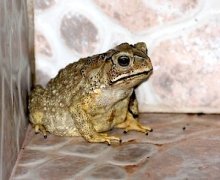 |
They are able to live in both land and water, although most species live more on land than in water.
Most species need water to lay their eggs for their tadpoles to swim and develop.
And the adults need to be close to water as although their skins are not waterproof, almost all species need their skins to remain moist.
Biggest and Smallest Frogs
The biggest variety that can be found in Malaysia is of course the American Bullfrog, which is not indigenous but farmed and consumed as culinary food.
The tiniest frog in the world is the Microhyla nepenthicola, a newly discovered specie in the Malaysian state of Sarawak. These tiny frogs only grow to the size of a pea, and live on plants called Nepenthes ampullaria, from which their name is derived.
Is It True That Frogs Call for the Rain?
To the local Malays, the croaking of frogs is said to be a harbinger of rain. They say that when you hear frogs croaking, they are actually calling for rain, and there will be a shower soon.
Of course we also usually hear frogs croaking even after the rains as well.
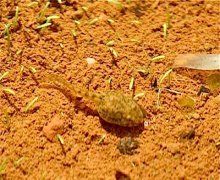 |
In fact there's a lyric in a popular Malay folk song that ask the frog why is it that frogs call for rain. The answer is that it's because the snakes want to eat them.
So probably the rains will stop the predatory snakes in their tracks and go elsewhere to hunt, as being reptiles, it might be too cold for them when the rainwater pours.
This of course is just local folk-lore which is co-incidental as frogs and toads are active during the wet season.
The sounds of the croaky voices are actually the calls for mates, and are heard the loudest in-between the rain showers. It is probably a kind of the frogs' version of the "American Idol" competition to gain the opposite sex's attraction, and probably the loudest and smoothest "croaker" gets the females' attention (hey...just joking!).
Nature's Food Chain
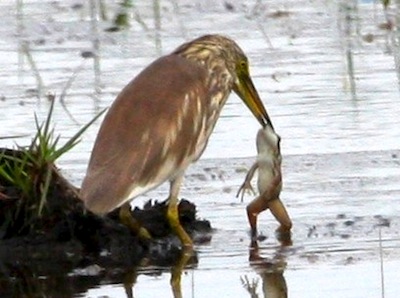 |
What do amphibians eat?
They are almost entirely carnivorous, that is, they eat living things, primarily insects, both invertebrates (ants and termites) and vertebrates.
Different frogs and toads eat differently depending on their location. For instance, crab-eating frogs live in mangrove areas, and as such their food are the sea-creatures.
The Malay song mentioned above also tells us that frogs and toads are food for some species of snakes in the country. So probably there will also be a snake lurking somewhere nearby when there are lots of them.
Frogs and toads are also food for fishes, birds and otters.
Need to Preserve Our Environment
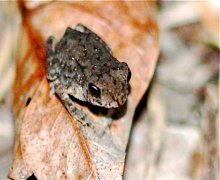 |
As we humans increase in population and open up more areas for development, there is the vital need to preserve the environment for other creatures as well.
Daily, more and more Malaysian animals like the tigers, rhinoceros and turtles, are in danger of extinction. Amphibians are actually the most threatened group, with about a third of them in danger of extinction.
Did You Know?
that some of the medicines we take today are based upon enzymes found on toads and frogs.
As mentioned earlier, the Malaysian amphibians are part of nature's food chain, and while they eat insects that are considered nuisance to humans, they are also food for other animals.
And do know that some of the medicines we take today are based upon enzymes found on toads and frogs.
For instance, recently scientists developed a drug for the treatment of brain tumors based on an enzyme contained in the eggs of Northern Leopard frogs that are native to the US state of Utah.
It is possible then that the many unique species of the Malaysian amphibians have medicinal uses too, and thus the precious need to preserve and conserve their habitats.
So, please take good care of our environment, wherever you are.
Smile.
Back to Homepage › Malaysian Amphibians
|
|
|
|
Our Visitors Favorite Pages
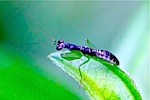 |
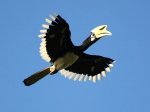 |
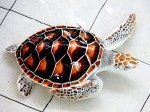 |
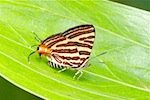 |
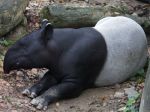 |
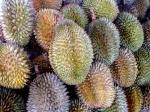 |
Get their best prices HERE!
|
|
|
And among His Signs is the creation of the heavens and the earth, and the living creatures that He has scattered through them: and He has Power to gather them together when He wills. There is not an animal (that lives) on the earth, nor a being that flies on its wings, but (forms part of) communities like you. And God has created every animal from water: of them there are some that creep on their bellies; some that walk on two legs; and some that walk on four. God creates what He wills for verily God has power over all things.
|








